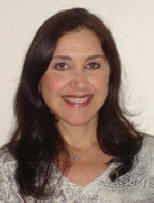
 |
| Ruth Schriebman, Doctor of Psychology |
| Ruth Schriebman, PsyD, MFT, CT 205 Avenue I, Suite 15 Redondo Beach, CA 90277 Phone: (310) 200-9022 |
|
Click here for a Google map
Please visit
Dr. Ruth's desktop site to learn more about Dr. Ruth Schriebman.
This website is intended to offer meaningful information to anyone who is now in counseling or seeking to find a counselor. The links below are good places to begin your journey. Or continue reading about Complicated Grief.
Grief & Bereavement |
|
Complicated Grief: An Overview The loss of a loved one is without a doubt a heart breaking experience. But can one actually die of a broken heart, as the poets would have us believe? Although at first blush, the question might even seem silly, where a cartoonish image of a pink heart pierced by a jagged line possibly comes to mind. Medical science, however, has found that a broken heart mirrors symptoms of actual coronary disease. The condition has been recognized by medical science for years, and is known by several names. The terms “complicated grief,” “traumatic grief,” “complicated bereavement,” “prolonged grief disorder,” or “pathologic grief," all describe what might be best known as "Broken Heart Syndrome." Broken Heart Syndrome, also known as "stress-induced cardiomyopathy," can afflict even those with no history of heart disease. Stress-induced cardiomyopathy, or broken-heart syndrome, is a weakening of the left ventricle, the heart’s main pumping chamber. This illness is often the result of severe stress. Angina, sudden and intense chest pain, and shortness of breath, are the most common signs and symptoms of Broken Heart Syndrome. Other symptoms of Broken Heart Syndrome include Arrhythmias, or irregular heartbeats. A coronary exam might show dramatic changes in rhythm and blood substances that are typical of a heart attack. But unlike a heart attack, there’s no evidence of blocked heart arteries in Broken Heart Syndrome. Cardiogenic shock, a condition in which a suddenly weakened heart can’t pump enough blood to meet the body’s needs, is also known to occur with Broken Heart Syndrome. Cardiogenic shock requires immediate medical attention, or the consequences could be dire. When people die from heart attacks, Cardiogenic shock is often the immediate cause of death. Although the symptoms of Broken Heart Syndrome are often similar to other physical, emotional, and psychological conditions, the newest science points to unique and promising therapies in the treatment of Complicated Grief. Complicated Grief is not the same as Clinical Depression, although the two conditions may show similar symptoms. So it only follows that effective treatment for treatment for Complicated Grief is different than treatment for Depression. Dr. Ruth Schriebman is specially trained in the treatment of Complicated Grief. For twenty-two years now, Dr. Schriebman has counseled, consoled, and offered professional treatment to many. Grief is like any disease. When bereavement consumes you, it is time to seek professional help. |
 |
| DISCLAIMER |
| This website and its agents make no representations, or warranties, expressed or implied, and assume no duty or liability with regard to the information contained herein or associated in any way therewith. |
|
© 2023 Ruth Schriebman Hand Coded Websites by EyePiece Presentations & Information, Gerald Reiff. webmaster |